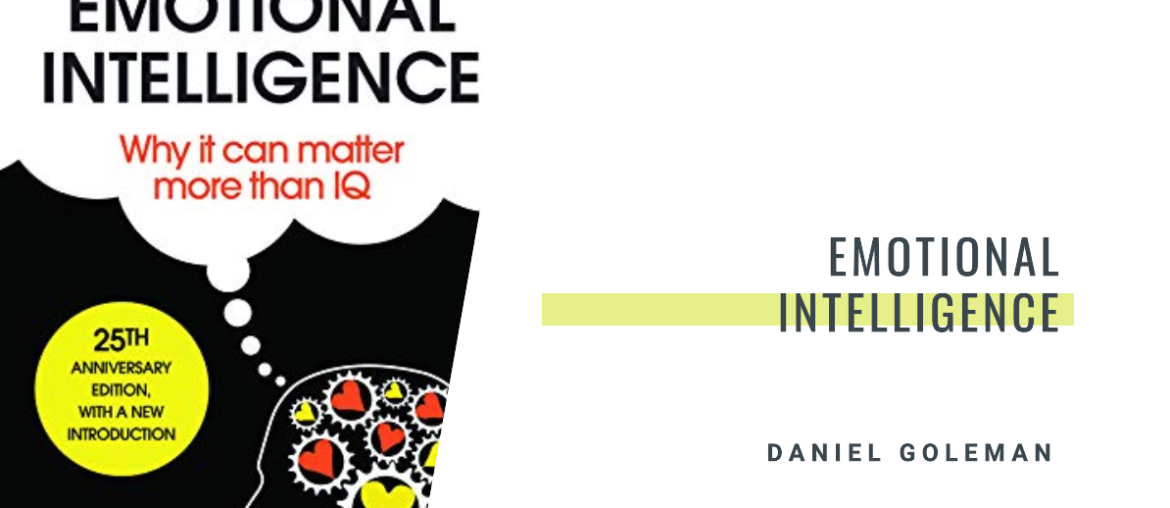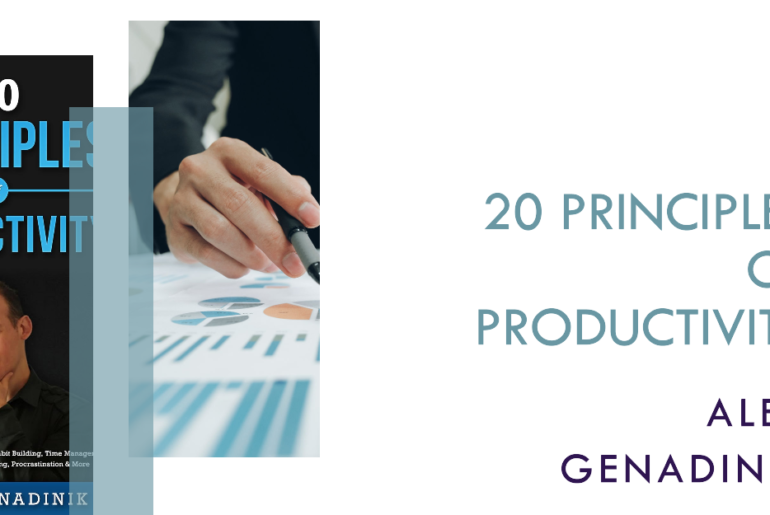We have already subscribed to a very unconventional way of discussing the book summary of ‘Emotional intelligence: why it can matter more than IQ’. In this second part of the series, learn about various emotional skill. Tailor your emotional aptitude for a fulfilling life. We will discuss optimism, hopefulness, the flow, how to control and possibly channel anger, anxiety and other negative feelings to your own advantages. Goleman termed this ability as ‘The Master Aptitude’. This article is everything you need to learn about this aptitude.


We will be combining several chapters from this book in this part. This summarizes the emotional skills we need to learn. Firstly, we will discuss many positive and negative feelings, then handling and channeling them. Moving on we will see the details of the repertoire of the master aptitude.
Click here for first part: Intimate Enemies.
Anger
Anger is a powerful emotion and can be quite destructive.
One way of defusing anger is to seize on and challenge the thoughts that trigger the surges of anger, since it is the original appraisal of an interaction that confirms and encourages the first burst of anger, and the subsequent reappraisals that fan the flames.
Daniel Goleman
Understanding science of rage:

The common misconception is that anger needs to be ventilated. Ventilation of anger doesn’t work. Having a punching bag to vent out anger doesn’t work (acting out of anger). To cool down taking a drive or a walk (distract) is better than this ventilation. Goleman describes:
… it is all too easy to continue with an indignant train of thought while cruising a shopping mall or devouring a piece of chocolate cake.

Try to stop angry train of thoughts by challenging it.
Anxiety
Worrying helps us to come up with positive solution by anticipating danger, hence, worrying can be channeled for advantage. Problems come with repetitive worrying, recycled worrying, and never actually coming with a positive solution.
It should be remembered worrying is expressed in mind’s ear (words), not in mind’s eyes (visual). This fact can be exploited to take advantage of worrying or at least in controlling worrying.

Worrying Mechanism- Worrying starts with one line narrative, and jumps from one coercive conclusion to another, catastrophizing them and imaging something terrible.
Shifting attention away can stop worrying. Relaxation methods can be used to focus on sensation like meditation or breathing exercise. Instead of coming up a solution worrier typically ruminate on danger itself.
Self imposed chronic worrying
Worrying habits can be reinforcing. Sometimes as a sense of superstition. Since most of the worrying is about something that will never happen, since they don’t happen like superstition worrying about them seems to undo them.
To break Chronic worrying
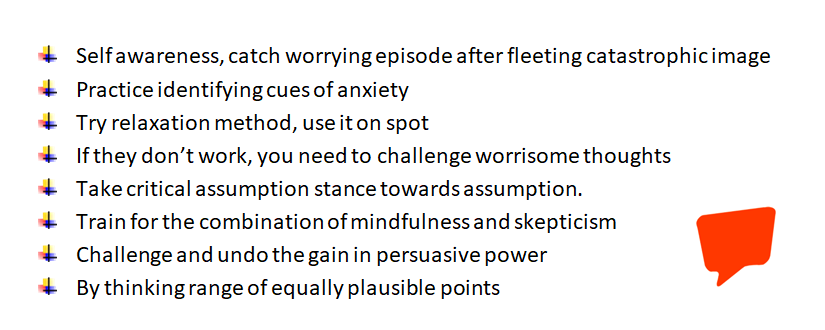
Melancholy
To counter melancholy, try to produce series of small triumphs or easy success. Cognitive re-framing is method to train your brain to see things in positive light. In addition downward comparison helps to many degrees. Helping other helps with sadness, praying is another strong remedy. People who practice religion find it easier to combat melancholy.
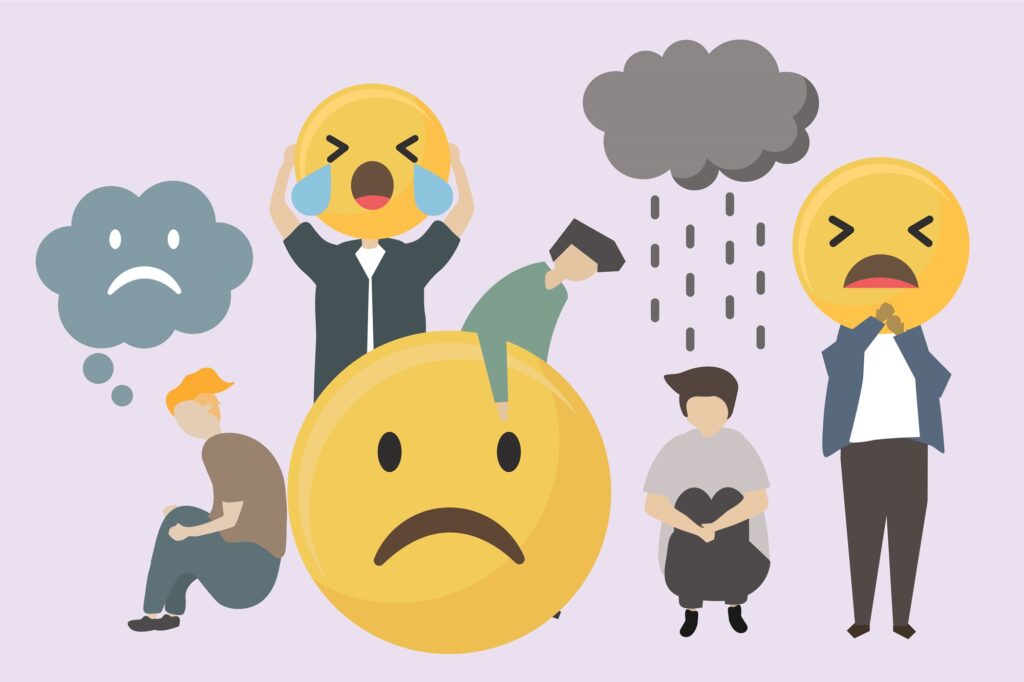
What does not help is crying. Sometimes outburst crying seem to help to refresh emotions by draining sadness. But this is a temporary solution and should be avoided and a remedy. Doing more depressing things does not help like crying or watching tragic movies.
“While crying can sometimes break a spell of sadness, it can also leave the person still obsessing about the reasons for despair. The idea of a “good cry” is misleading: crying that reinforces rumination only prolongs the misery.”
Mastering emotions: Master Aptitude
Bad mood or anxiety, anger, depression can hamper mental ability. Similarly, good mood can enhance your performance. Ability to delay gratification contributes powerfully to intellectual potential quite apart from IQ itself. Harnessing of emotions is powerful thing to learn. For example people with chronic anxiety can train to use anticipatory anxiety to motivate themselves to perform better.

Hope
People who hope can outperform their more intellectual peers (who are hopeless). Hopefulness is more than having just a sunny view of everything.
Hope means believing yourself to have both will and way to accomplish your goals whatever they may be. Self motivation and resourcefulness are trait of hopeful people. They reassure themselves to do better in tight spot, flexible enough to switch tactic even if goal is impossible. They similarly have a sense to breakdown a formidable task.

The emotionally intelligent part of hopeful people is not giving up in overwhelming anxiety, depression or other difficulty.
Optimism
Optimism is a strong predictor of success and is a subject of emotional intelligence which we can learn. In conclusion, this emotion is about self-efficacy and belief of mastery of events of one’s life. They can meet challenges as they come up.

Goleman best described it in his words…
Developing a competency of any kind strengthens the sense of self-efficacy, making a person more willing to take risks and seek out more demanding challenges. And surmounting those challenges in turn increases the sense of self-efficacy. This attitude makes people more likely to make the best use of whatever skills they may have—or to do what it takes to develop them.
Daniel Goleman
The Flow
Because flow emerges in the zone in which an activity challenges people to the fullest of their capacities, as their skills increase it takes a heightened challenge to get into flow. If a task is too simple, it is boring; if too challenging, the result is anxiety rather than flow.
Daniel Goleman

It is argued that a more practised individual can enter flow easily. During flow, one exhibits mastery of control but are unconcerned how they are doing or have any though or failure or success. Mental energy expenditure is a bare minimum. Though entering flow can be tough and state can be lost even by a thought of distraction. People can still find and learn ways to enter flow.
Master Aptitude
Channeling emotions towards productive end is a master aptitude. In addition you can learn this aptitude by training yourself in emotional intelligence.
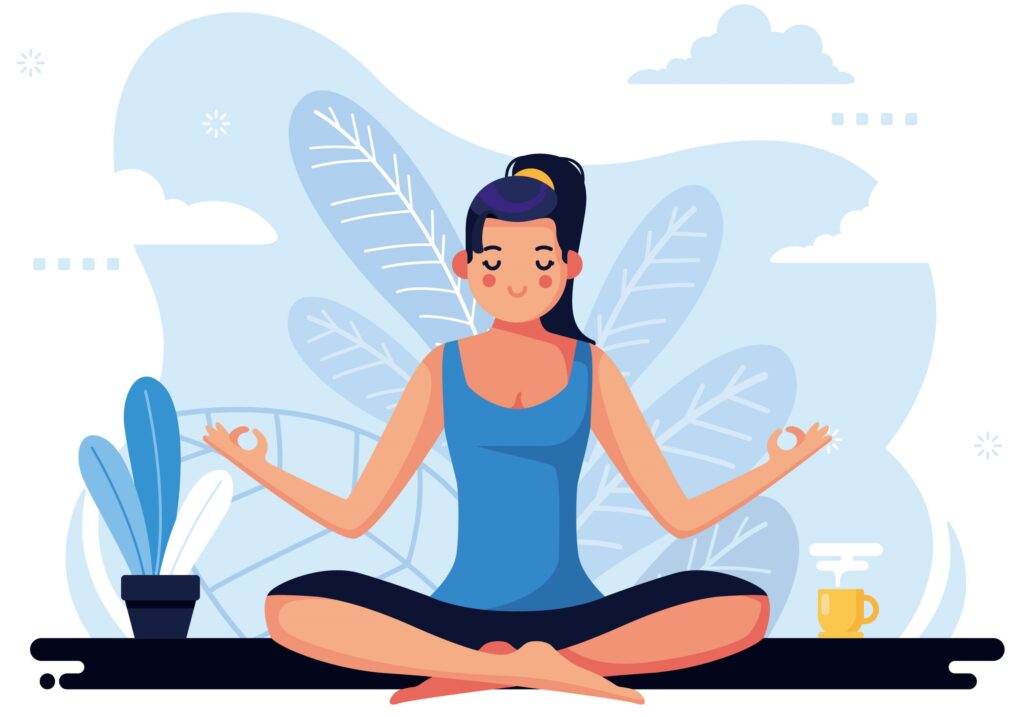
As mentioned many times in book, unlike IQ, we can learn. Hence, it can matter more than IQ. Our leaning about emotional intelligence are following but not limited to:

Emotional Intelligence is a Master Aptitude
Daniel Goleman
Discover more from Talking Concept
Subscribe to get the latest posts sent to your email.

